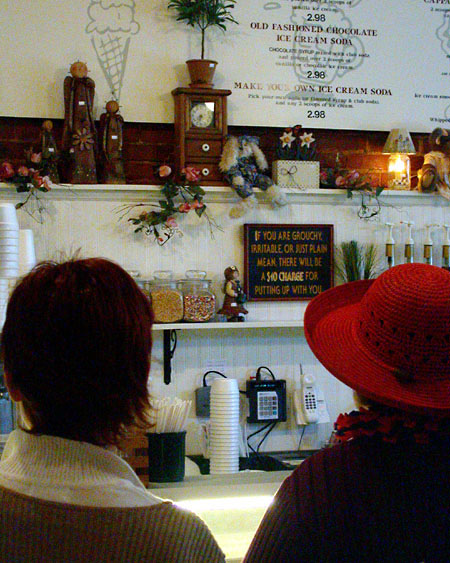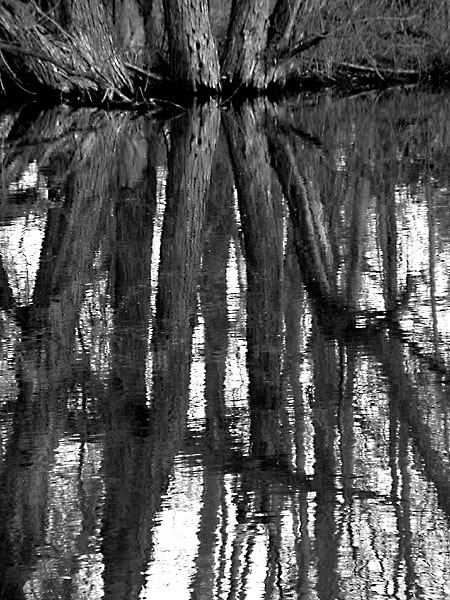Did Emily Dickinson mind that only eleven of her works were published during her lifetime? From her letters, one would assume that she didn’t because she talked about family and friends and seemed content. For all the talk about her being reclusive, she did have the close proximity of her beloved brother and sister all her life, in addition to her long correspondence and relationship with friends and other family members.
Yet what of Emily’s letter to Thomas Wentworth Higginson in response to his Letter to a Young Contributor? To his challenge to young poets, she wrote:
Are you too deeply occupied to say if my verse is alive?
The mind is so near itself it cannot see distinctly, and I have none to ask.
Should you think it breathed, and had you the leisure to tell me, I should feel quick gratitude.
If I make the mistake, that you dared to tell me would give me sincerer honor toward you.
I inclose my name, asking you, if you please, sir, to tell me what is true?
That you will not betray me it is needless to ask, since honor is its own pawn.
With this letter she also enclosed four poems: I’ll tell you how the Sun rose, Safe in their Alabaster Chambers, The Nearest Dream recedes unrealized, and We play at paste:
We play at paste,
Till qualified for pearl,
Then drop the paste,And deem ourself a fool.
The shapes, though, were similar,
And our new hands
Learned gem-tactics
Practising sands.
It’s difficult not to think that someone who writes, Are you too deeply occupied to say if my Verse is alive? is indifferent to what others would perceive of her work. However, one extremely thoughtful paper that I found at Kangnam University in South Korea, states that Dickinson never wanted to be published. What she wanted from Higginson was permission not to publish, to quiet the voices of those who hounded her to send in her work. This is somewhat supported by the fact that, with one exception, the poems she did publish were sent to the publishers without her permission.
Higginson, began a many year correspondence with Emily after that unusual opening, becoming one of her most cherished friends. Yet read what he writes about his initial reaction to Emily’s letter:
The letter was postmarked “Amherst,” and it was in a handwriting so peculiar that it seemed as if the writer might have taken her first lessons by studying the famous fossil bird-tracks in the museum of that college town. Yet it was not in the slightest degree illiterate, but cultivated, quaint, and wholly unique. Of punctuation there was little; she used chiefly dashes, and it has been thought better, in printing these letters, as with her poems, to give them the benefit in this respect of the ordinary usages; and so with her habit as to capitalization, as the printers call it, in which she followed the Old English and present German method of thus distinguishing every noun substantive. But the most curious thing about the letter was the total absence of a signature. It proved, however, that she had written her name on a card, and put it under the shelter of a smaller envelope inclosed in the larger; and even this name was written–as if the shy writer wished to recede as far as possible from view–in pencil, not in ink. The name was Emily Dickinson.
And it was from this reaction that Higginson recommended to Emily that she consider changing the form of her poems to fit the accepted patterns of the day; to ‘regularize’ them, as it has been termed.
Emily’s response back was a letter that contained the fateful sentence, Thank you for the surgery- it was not so painful as I supposed. Taken in the context of the entire letter, it seems more optimistic than not but looked at in its singularity and we can see a finality to Emily’s dreams of publication — instead of embracing her form and publishing her work, Higginson had recommended that she remove those distinctive aspects of her writing.
Thank you for the surgery- it was not so painful as I supposed.
This sentence takes on a new dimension when one looks at her earlier publishing experience. Her first published work was a mock Valentine called “Magnum bonum”, sent without her permission to the Amherst College Indicator by her close friend (and one of the many supposed loves of her life) Ben Newton. The gratification of publication was somewhat lessened when Emily saw that they had corrected her punctuation.
Her second publication, again a mock valentine, but this time a poem, “Sic Transit”, was sent without her knowledge to the newspaper, the “Springfield Republican”. Again the work was published anonymously, and the introduction was flattering. Again, though, the paper ‘regularized’ Emily’s work.
This was to continue with all of Emily’s works up until she wrote her first letter to Higginson, and on receiving his recommendation to alter her writing style, she responds with, “Thank you for the surgery- it was not so painful as I supposed.”
I worked for chaff and earning Wheat
Was haughty and betrayed.
What right had Fields to arbitrate
In matters ratified?I tasted Wheat and hated Chaff
And thanked the ample friend –Wisdom is more becoming viewed
At distance than at hand.

If Emily but put her mind to observing proper form, she could have been famous within her lifetime. Her choosing not to do so was a source of frustration to many of those around her, including Higginson, who would write of another poem sent to him:
Here was already manifest that defiance of form, never through carelessness, and never precisely from whim, which so marked her. The slightest change in the order of word–thus, “While yet at school, a girl”–would have given her a rhyme for this last line; but no; she was intent upon her thought, and it would not have satisfied her to make the change.
When viewing Emily Dickinson in a modern context, I can’t help thinking that she would look upon the Creative Commons Licenses with horror. After working so hard to maintain the nature of her work, to then freely allow someone else to alter her work based on their own artistic interpretation? Impossible? Unthinkable!
Even slight changes in punctuation would leave her feeling both angered, and betrayed. She would never understand. As she wrote back to Higginson in her third letter:
If fame belonged to me, I could not escape her; if she did not, the longest day would pass me on the chase, and the approbation of my dog would forsake me then. My barefoot rank is better.
You think my gait “spasmodic.” I am in danger, sir. You think me “uncontrolled.” I have no tribunal.
Would you have time to be the “friend” you should think I need? I have a little shape: it would not crowd your desk, nor make much racket as the mouse that dents your galleries.

Some — Work for Immortality –
The Chiefer part, for Time –
He — Compensates — immediately –
The former — Checks — on Fame –Slow Gold — but Everlasting –
The Bullion of Today –
Contrasted with the Currency
Of Immortality –A Beggar — Here and There –
Is gifted to discern
Beyond the Broker’s insight –One’s — Money — One’s — the Mine –
In many ways, Emily’s refusal to conform in writing style was of a piece with her defiance against the Church; her refusal to be ‘born again’ as it were, manifested in some of her most satirical, and brilliant, work.
Now I lay thee down to Sleep-
I pray the Lord they Dust to keep-
And if thou live before thou wake-
I pray the Lord thy Soul to make-
While away at school, she was the only student who would not conform to the accepted religious beliefs of the time and was marked so. Later at home, all around her those she loved and admired succumbed to the same church she could not accept, until even the mildest reference of it would invoke her wrath. She and her brother and sister received a letter from a cousin that spoke glowingly of the Church, and her brother had to reply that it would be best that any correspondence of this nature be addressed only to him and Vinnie, because the topic would drive Emily into a rage.
Thus the brother who was always Emily’s most trusted confident, became the first of many who would act in Emily’s interests, though the act would itself seal and set Emily’s status of Outsider.
God gave a Loaf to every Bird –
But just a Crumb — to Me –
I dare not eat it — tho’ I starve –
My poignant luxury –To own it — touch it –
Prove the feat — that made the Pellet mine –Too happy — for my Sparrow’s chance –
For Ampler Coveting –It might be Famine — all around –
I could not miss an Ear –
Such Plenty smiles upon my Board –
My Garner shows so fair –I wonder how the Rich — may feel –
An Indiaman — An Earl –
I deem that I — with but a Crumb –
Am Sovereign of them all –

Emily Dickinson was an explorer in her youth, vivacious and outgoing. She once joked in a letter about her ‘devastating beauty’, and later at school would compose letters that were signed by all her friends. But her writing, as with her views on religion, would set her apart, and over time, the adventurer would withdraw ever inward.
Susie–
You will forgive me, for I never visit. I am from the fields, you know, and while quite at home with the Dandelion, make but a sorry figure in a Drawing–room–Did you ask me out with a bunch of Daisies, I should thank you, and accept–but with Roses-“Lilies”-“Solomon” himself-suffers much embarrassment! Do not mind me Susie – If I do not come with my feet, in my heart I come-talk the most, and laugh the loudest-stay when all the rest have gone-kiss your cheek, perhaps, while those honest people quite forget you in their Sleep!

However, the world of words was still Emily’s and she continued to write her poems (sewed into little booklets known as fascicles and stored away, secret from prying eyes), and her letters to friends. She put much of herself in her writing, trusting the confidence of the recipient, because, as she noted in her letter to Higginson “…honor is its own pawn.”
But Emily’s reliance on Higginson’s confidence was misplaced. He would share her letters with his friends, going so far once as to take her work and her letters to a meeting of women scholars, trusting that to keep the writing anonymous would not be a breach of honor. More, he called her his “partially cracked poetess at Amherst”, and an act of fun among his intimate acquaintances was to emulate Emily’s writing style in writing letters to each other.
Look back on Time, with kindly eyes –
He doubtless did his best –
How softly sinks that trembling sun
In Human Nature’s West –

We talk from time to time about the animosity with which we write about each other, in postings in our weblogs and in comments or elsewhere. We cluck our tongues and go, ‘Tsk, tsk’ at the act and condemn those who would speak so bluntly. But consider the alternative–that the words of fun or condescension, delight or despair are hidden; whispered words just beyond our hearing. No harm you might think if you don’t hear the words and are not impacted by them. However, no matter how skilled we are at writing, we are not so skilled at disseminating, and the words will eventually bleed through–a half-understood inside joke, or a knowing wink in writing.
I can think of few things more painful, or more betraying, and I don’t have half the sensitivity that Emily had. Or her perception with words. Emily must have known.
They might not need me yet they might
I’ll let my Heart be just in sightA smile so small as mine might be
Precisely their necessity
A few years before her death, her oldest nephew died, and two month’s later Emily’s brother Austin, began an affair with Mabel Loomis Todd, an act that Emily felt painfully and deeply because of her love for her sister-in-law, Susan, and her esteem for her brother.
Mine Enemy is growing old –
I have at last Revenge –
The Palate of the Hate departs –
If any would avengeLet him be quick – the Viand flits –
It is a faded Meat –
Anger as soon as fed is dead –
‘Tis starving makes it fat –

Emily Dickinson sickened one last time and died peacefully at home, cared for by her sister, surrounded by those she loved. At her quiet memorial–she refused church services–Susan said:
To her life was rich, and all aglow with God and immortality. With no creed, no formalized faith, hardly knowing the names of dogmas, she walked this life with the gentleness and reverence of old saints, with the firm steps of martyrs who sing while they suffer. How better note the flight of this “soul of fire in a shell of pearl” than by her own words—
Emily Dickinson had left instructions with her sister to destroy all the letters she kept and all her writings, but when Lavinia found the trunk with all of Emily’s poems, she couldn’t bring herself to destroy them.
She asked Susan to edit them for publication, but Susan never followed through, and Lavinia finally turned to Higginson and Mabel Todd Loomis–yes that Higginson and that Mabel Todd Loomis–to edit the poems for publication.
Mabel did so, but only after altering them to fit the standards of the day, and after the publishers broke apart Emily’s careful little booklets, and arranged them in categories popular at the time. It was not until the 1950’s that Thomas Johnson began the work to publish the poems in the original form.
After reading so much about Emily Dickinson, I wonder about the act that saved her work. Did Lavinia betray her sister in saving the poems for publication? Or was the act redeemed when the poems were returned to their original form?
As for our own culpability, do we betray Emily when we read her poetry these many years later when each poem should have been its own bit of flame and ash? Or would it be a greater betrayal not to read them, and cherish their uniqueness?
“People say a word dies when it is written by the pen,
but for me that word’s Life is just about to begin.”
– Emily Dickinson






